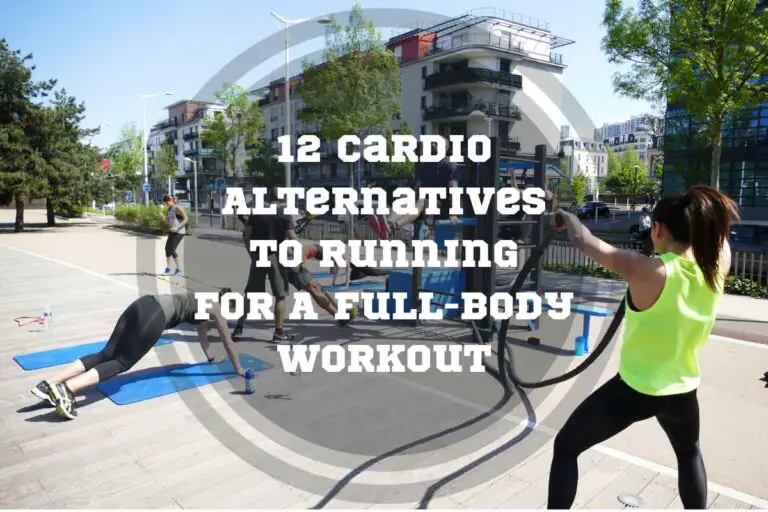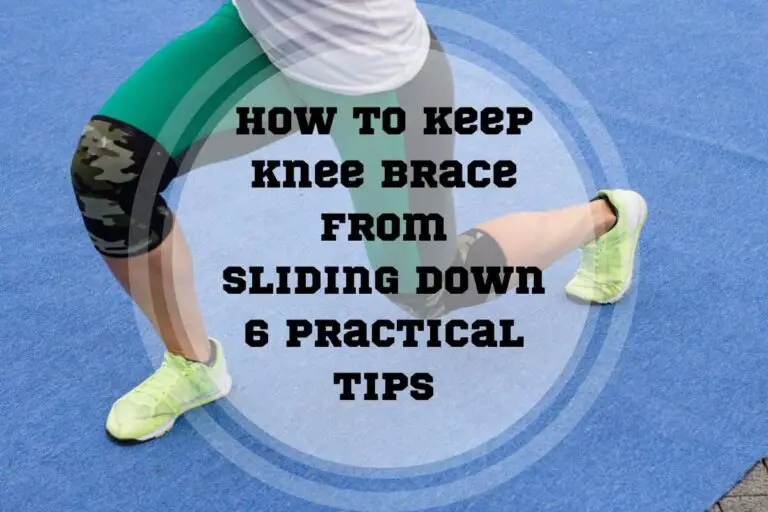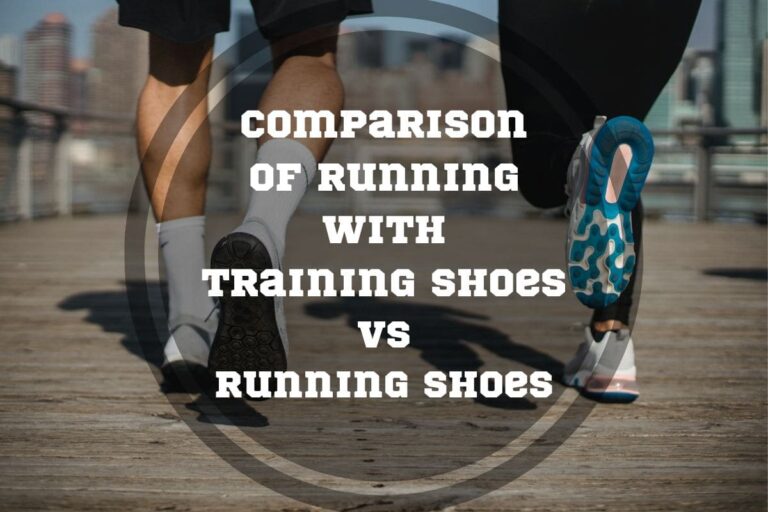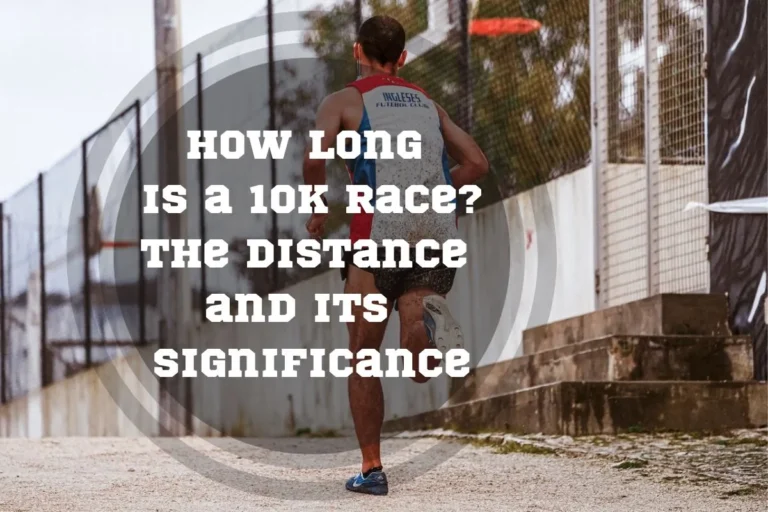Easy Prep For An 8k Run In Miles
This article will help you prepare for an 8k run in miles. Let’s find out how many miles is an 8k, how to train properly, what strategies to implement to have a successful and healthy run, what gear you should have, and other good-to-know tips.
So, how many miles is an 8k race? An 8k race is 8 kilometers long, hence the name. One kilometer is roughly 0.62 miles — Multiplied by 8, we get roughly 4.97, which rounds up as 5 for convenience’s sake. That’s the approximate length of 8k run in miles.

How Many Miles Is An 8K?
So, how much is 8k in miles? It’s easy to tell once you understand the name. The 8k is short for eight thousand, referring to the approximately 8000 meters length of the track, or simply 8 kilometers (1km = 1000m). One kilometer is about 0.62 miles, which would mean an 8k race in miles is roughly 4.97 mi. This number is usually rounded up to 5 miles for convenience’s sake. So if you hear a race referred to as 5mi, that’s the same thing. So, put simply, an 8k race is 5 miles. Here’s an example of common distance races per mile:
| Race | Distance in Kilometers (km) | Distance in miles (mi) |
|---|---|---|
| 5k | 5k | 3.11mi |
| 8k | 8k | 4.97mi |
| 10k | 10k | 6.21mi |
| Half-marathon | 21.1km | 13.1mi |
| Marathon | 42.2km | 26.2mi |
But how far is an 8k run in total steps? The total step count will vary from person to person and depends on your stride length — the distance you cover with each step. According to studies, the average number of steps taken per mile run is roughly 1,084. The medial height in the study was 5’10” or about 178 cm. On average, the length of a step increases with height. Based on this, ballpark numbers for an 8k race would be:
| Distance | # of steps |
|---|---|
| 1 kilometer | Approx. 674 |
| 8 kilometer | Approx. 4,336 |
| 1 mile | Approx. 1,084 |
| 5 miles | Approx. 5,420 |
How Many Miles Is An 8k For Running?
While both running and walking cover the same distance in an 8k race, the average step count differs between the two activities. Running typically involves longer strides, resulting in a lower step count compared to walking the same distance.
3 Benefits Of Running 8K
Running is one of the purest forms of cardiovascular activity. Here are some benefits of running an 8k race, and mid to long-distance running in general:
1. Calorie Burn
Distance running is an excellent form of weight management and calorie burning. Running for 8 kilometers, which is the exact distance of an 8k race, averages at about 8.1-8.3 METs (metabolic equivalents of a task). Using a standard calorie calculator formula of METs x 3.5 x your body weight in kilograms / 200, we can get the exact number of calories burned per minute during an 8k. If we take into account the average weight is roughly 200 lbs for a male adult and 130 lbs for a female adult, we get:
- For the 200 lbs male: 8.1×3.5×90.7185/200≈14.196 calories burned per minute
- For the 130 lbs female: 8.1×3.5×58.967/200≈8.398 calories burned per minute

2. Improved Quality Of Life
Like all forms of exercise, distance running has long-term health benefits that can greatly improve your quality of life over time and protect against common age-related health issues. For example, this study following ultramarathon runners over three decades showed they had lower rates of heart disease, diabetes, and certain cancers compared to the general population.
3. Prepping For Bigger Events
Preparing for an 8k race is a great way to ease yourself into even longer distance runs. For example, the obvious next step would be a 10-12k race, roughly 6.2 and 7.4 miles. Once you’ve conquered that, note that a half marathon is roughly 13.1 miles long.
What Is A Good 8k Running Time?
Now that we understand how far is 8k in miles run, let’s take a look at average running time. What constitutes a good running time for an 8k race will depend on various factors, including gender, age, fitness level, prior experience, etc.
So, what is an 8k run in miles like for different genders? The average human running speed is roughly 10 minutes per mile for men and 11 minutes for women. Based on this, the expected average time for a 5-mile run would be 50 minutes for men and 55 for women. Indeed, men tend to be a bit faster on average, but the difference is actually lower the longer the race is.
What about age differences? According to research, trained distance runners peak out at roughly 27 years old for men and 29 for women. According to the data, this peak can be kept up until roughly 50 years old.
Here’s a quick table summary of expected running time for different ages and genders. Note that this is just an example based on data from experienced runners and might not reflect your experience. There isn’t a reliable way to measure beginners.
| Age | Male Runner | Female Runner |
|---|---|---|
| 15-18 | 35-45 minutes | 40-50 minutes |
| 19-25 | 30-40 minutes | 35-45 minutes |
| 26-35 | 27-37 minutes | 32-42 minutes |
| 36-50 | 30-40 minutes | 35-45 minutes |
| 51-65 | 35-45 | 40-50 minutes |
| 65+ | 40-50 | 45-55 minutes |
Calculator Of Running Time: 8K Run Time
Calculate you 8K running time with our calculator, that based on factoring in variables such as gender, level of training and age. Everyone here can check the approximate time, to cover 8K running distance.
Running Time Calculator
Result:
How To Train For An 8k
If you’re new to distance running, it may be a bit confusing how and when you should start training. You want to strike a balance between training enough but not exhausting yourself before race day. For this reason, experienced runners start training a few weeks in advance, upping the intensity every week, and eventually hitting race day at the peak of their training program. You should be running at least three days a week. Start by running lightly and slowly increasing the distance. Halfway through your training program, you should permanently up the pace. Between those days, you should stay active through other means (cross-training), such as swimming, dance classes, cycling, rollerskating, etc.
But, you also want to set aside at least one day for traditional resistance training, too. Although it may not seem beneficial to train your strength when preparing for a run, studies have shown that incorporating resistance training can up your running economy by up to 8%. It’s a good way to stay physically active while also avoiding fatigue from running. Finally, you want at least one day of full rest to let your body reset. Of course, feel free to go for a walk, stretch, do some yoga, or similar. With all that said, here’s an example 8-week training program that will ease you into your 8k race in miles:
Week 1:
- Monday: 1.5 miles (Easy Run)
- Tuesday: Cross-Training
- Wednesday: 1.5 miles (Easy Run)
- Thursday: Cross-Training
- Friday: Resistance Training (Strength Day)
- Saturday: 2 miles (Moderate Run)
- Sunday: Rest or Active Recovery
Week 2:
- Monday: 2 miles (Easy Run)
- Tuesday: Cross-Training
- Wednesday: 2 miles (Easy Run)
- Thursday: Cross-Training
- Friday: Resistance Training (Strength Day)
- Saturday: 2.5 miles (Moderate Run)
- Sunday: Rest or Active Recovery
Week 3:
- Monday: 2.5 miles (Easy Run)
- Tuesday: Cross-Training
- Wednesday: 2.5 miles (Easy Run)
- Thursday: Cross-Training
- Friday: Resistance Training (Strength Day)
- Saturday: 3 miles (Moderate Run)
- Sunday: Rest or Active Recovery
Week 4:
- Monday: 3 miles (Easy Run)
- Tuesday: Cross-Training
- Wednesday: 3 miles (Easy Run)
- Thursday: Cross-Training
- Friday: Resistance Training (Strength Day)
- Saturday: 3.5 miles (Moderate Run)
- Sunday: Rest or Active Recovery
Week 5:
- Monday: 3.5 miles (Moderate Run)
- Tuesday: Cross-Training
- Wednesday: 3.5 miles (Moderate Run)
- Thursday: Cross-Training
- Friday: Resistance Training (Strength Day)
- Saturday: 4 miles (Full Pace)
- Sunday: Rest or Active Recovery
Subscribe to Our Running Newsletter!
Get free running tips from renowned professional athletes and discounts from top-notch brands.
Week 6:
- Monday: 4 miles (Moderate Run)
- Tuesday: Cross-Training
- Wednesday: 4 miles (Moderate Run)
- Thursday: Cross-Training
- Friday: Resistance Training (Strength Day)
- Saturday: 4.5 miles (Full Pace)
- Sunday: Rest or Active Recovery
Week 7:
- Monday: 4.5 miles (Moderate Run)
- Tuesday: Cross-Training
- Wednesday: 4.5 miles (Full Pace)
- Thursday: Cross-Training
- Friday: Resistance Training (Strength Day)
- Saturday: 5 miles (Full Pace)
- Sunday: Rest or Active Recovery
Week 8:
- Monday: 5 miles (Full Run)
- Tuesday: Cross-Training
- Wednesday: 5 miles (Full Pace)
- Thursday: Cross-Training
- Friday: Rest or Active Recovery
- Saturday: Race Day
- Sunday: Rest
How Long Does It Take To Train For An 8K?
How long it takes to prepare for an 8k race in miles depends on several factors, most notably your athletic level and experience. Training programs for beginners with good general health and average athletic level typically last for 8 weeks, upping the intensity every week until the runner is comfortable taking on a full 8k without much issue.
Intermediate runners, for example, those who have a few races under their belt or are coming back from a break, can already cover a longer distance than beginners. For them, 6 weeks is usually enough to prepare for an 8k. Finally, advanced runners actively train pretty much year-round, but up the pace roughly 4 weeks before the race. If you’re new to long-distance runs, a good ballpark number for starting training is two months before the race. Here are some additional tips to help you train:
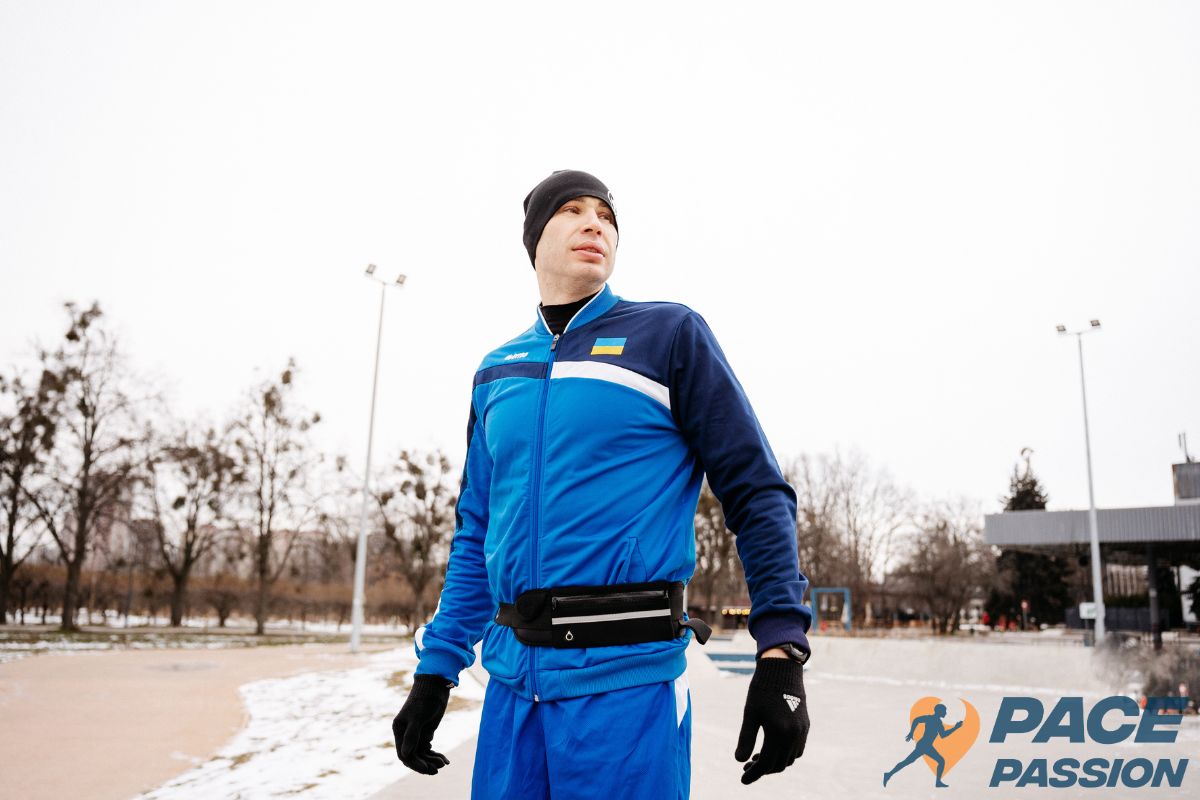
Test The Track
Long-distance runs typically take place in the inner city on closed streets. There shouldn’t be any surprises, but it’s a good idea to familiarize yourself with the course. Check the official race route, then try to incorporate it into your training routine, and measure your performance. That way, you’ll come to the race day with realistic expectations and a preset pace. Running on familiar terrain will boost your confidence.
Experiment With Hydration
You want to narrow down your hydration drink of choice before race day to avoid surprising your stomach. Water is always a good idea, but sports drinks with natural caffeine, small doses of clean sugar, and electrolytes can be a big performance enhancer. Check the race ahead of you for any sponsored drinks that will be available on the track. Try them with your workout and see how they feel. If they happen to suit you, you’re guaranteed a steady supply.
Prepare Your Outfit
It might sound like a cool idea to show up in a brand-new tracksuit and shoes for race day, especially if it’s your first distance race. However, the last thing you want mid-race is a wardrobe malfunction causing issues. For example, pants that won’t stay on, socks that keep sliding down, or ill-fitting shoes. Running shoes are known for being comfortable from first wear and not having a super long break-in period, but it’s still a good idea to get a feel for them, even if you’ve owned the same pair of shoes before. So, train in your desired outfit to give it a good test ride well before race day.
How To Run An 8K Race?
So, race day is rapidly approaching. You’ve done your training and you’re confident you’re ready. Here are some additional race day tips to run an 8k race in miles:
Avoid Chasing Others
For beginner runners, it’s especially important to focus on running at your own pace and avoid chasing/racing with others. It’s easy to get caught up in the excitement and get led by the crowd.
For beginner runners, it’s especially easy to get caught up in the excitement and get led by the crowd. However, it’s important
Start Slow Then Ramp Up
Hitting the ground running is a common beginner mistake in distance running. However, wasting too much energy early can leave you fatigued and unable to finish the race. If you’ve kept track of your training progress, you should have a good idea of your average pace. In an 8k, start the first mile slower, at roughly 70-80% of your average, then ramp up. Not running at full speed immediately will conserve some energy which you can use to give yourself a boost in the last mile.
Know How To Stay Hydrated
There will be multiple hydration stops and volunteers handing out water or sports drinks throughout the track. With that in mind, it’s important to understand proper strategy when it comes to hydration during long-distance runs. Experienced runners will have differing preferences, but for the average person, consistently drinking small amounts of water to rehydrate is better and safer than waiting for prolonged periods and then taking larger quantities at once. A good liquid dosage amount is roughly 50ml per 1 hour of running for experienced runners, and up to 100ml for recreationalists.
Eat Lightly For A Week
Professional distance runners such as Marathon competitors have a specialized nutrition plan they stick to pretty much year-round. Unless you have high competitive aspirations, you don’t have to be so strict in your diet before the race. That said, it’s important to clean up your eating at least a week before the race to avoid upsetting your stomach. Recommended foods include lean protein such as chicken, fish, or tofu, carbs like broccoli and rice, and natural fats such as nuts or avocados. For snacks, grab some fruit and a fitness chocolate bar. For breakfast on race day, consider oatmeal with fruits and a smoothie with a scoop of protein.
FAQ
How Hard Is It To Run An 8K Without Training?
While those in good shape can attempt an 8k without training, it’s not advisable. Your body’s resilience and willpower may carry you through, but running without proper conditioning can result in severe fatigue and hidden micro-injuries that surface later. Risks of sickness, dizziness, and dehydration also increase, and recovery might take anywhere from a few days to weeks. Being bedridden for initial recovery days is not uncommon either.
How Many Calories Do You Burn On An 8K Run?
For the average-sized man or woman, an 8k race will result in roughly 14 or 8 calories per minute respectively. However, factors such as age, BMI, gender as well as outside elements like wind and heat can also influence this. You can use this calculator to get a better estimate, but the only guaranteed way to know is by measuring it for yourself.
Can You Train For An 8K In 2 months?
Yes, it’s realistic to train up for an 8k run in two months, especially if you have prior running experience or are in generally good health. You may not beat race records, but just 6-8 weeks of training can ensure you have a smooth run and recover quickly.
Is An 8K Good For Beginning Runners?
An 8k race is considered an intermediate run. It can be tough for absolute beginners but is a good goal if you want to get into distance running.
Conclusion
An 8k run in miles comes out to roughly 5mi. In terms of long-distance runs, an 8k race in miles is considered an intermediate run, leaning more towards easy than hard. It’s a good challenge for beginner distance runners to get in the game or intermediate to advanced runners to stay active during the year before bigger races.
We’d love to hear from you as well. Are you thinking of trying your first 8k? Have you tried other distance runs? Let us know by leaving a comment and remember to follow us on social media for similar fitness content.
References:
- Alan P. Jung, “The impact of resistance training on distance running performance” – Sports Medicine vol. 33, no. 7 (2003), 539-552
- Beatriz Lara, Juan José Salinero, Juan Del Coso, “The relationship between age and running time in elite marathoners is U-shaped” – Age (Dordr) vol. 36, no. 2 (2014), 1003-1008
- Calories Burned Calculator – Calculator.net https://www.calculator.net/calories-burned-calculator.html (accessed 12 Jan, 2023)
- E. E. van der Wall, “Long-distance running: running for a long life?” – Netherlands Heart Journal vol. 22, no. 3 (2014), 89-90
- Franck Le Mat, Mathias Géry, Thibault Besson, Cyril Ferdynus, Nicolas Bouscaren, Guillaume Millet, “Running Endurance in Women Compared to Men: Retrospective Analysis of Matched Real-World Big Data” – Sports Medicine vol. 53, no. 4 (2023), 917-926
- Márcio de Almeida Mendes, Inácio da Silva, Virgílio Ramires, Felipe Reichert, Rafaela Martins, Rodrigo Ferreira, Elaine Tomasi, “Metabolic equivalent of task (METs) thresholds as an indicator of physical activity intensity” – PLoS One vol. 13, no. 7 (2018), e0200701
- T. D. Noakes, B. A. Adams, K. H. Myburgh, C. Greeff, T. Lotz, M. Nathan, “The danger of an inadequate water intake during prolonged exercise. A novel concept re-visited” – European Journal of Applied Physiology vol. 57, no. 2 (1988), 210-219
- T. P. Backes, K. Fitzgerald, “Fluid consumption, exercise, and cognitive performance” – Biology of Sport vol. 33, no. 3 (2016), 291-296
- Werner Hoeger, Laura Bond, Lynda Ransdell, Jane Shimon, Sunitha Merugu, “ONE-MILE STEP COUNT AT WALKING AND RUNNING SPEEDS.” The American College of Sports Medicine Health & Fitness Journal vol. 12, no. (2008), 14-19
- Photo from Pexels by: Julia Larson, Photo by Barbara Olsen
If you have any questions or suggestions, you can contact us via email – [email protected]

